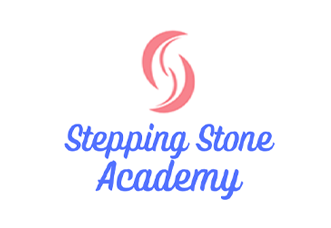
Unlocking Your Hidden Professional Superpowers as a Nurse
You’ve heard it a million times: “Nurses have so many transferable skills!” It’s what well-meaning friends, family, and career counselors tell you when you mention burning out at the bedside. But when the hospital corridor is the only professional home you’ve known, those words can feel frustratingly vague. What exactly does “transferable skills” mean when your daily reality involves medication administration, patient assessments, and care plans?
If you’re nodding along, you’re not alone. Many nurses stand at this crossroads—knowing they have valuable abilities but struggling to translate them into language that resonates in board rooms instead of break rooms.
From Hospital Halls to New Horizons
The challenge isn’t that you lack skills—it’s that you’ve been speaking a specialized professional language for so long that you might not recognize how your expertise sounds in other contexts. Think of it as being fluent in “Nurse” but needing to communicate in “Corporate,” “Tech,” or “Education.”
Let’s bridge that gap by decoding what you already know into what potential employers outside healthcare are desperately seeking.
Your Professional Superpowers: Decoded
The Communication Specialist
What you call it: Patient education, handoff reports, family updates
What everyone else calls it: Strategic communication, stakeholder management, client relations
Every day, you translate complex medical jargon into language that frightened patients and their families can understand. You’ve navigated difficult conversations about life-altering diagnoses and end-of-life care. In the boardroom, this translates to an exceptional ability to communicate complex concepts to diverse audiences—a skill that consulting firms, educational institutions, and customer experience teams value immensely.
Career pathways to explore: Healthcare PR, Nurse Consultant, Patient Advocate
The Crisis Manager
What you call it: Responding to rapid responses, managing unexpected changes in patient condition
What everyone else calls it: Crisis management, adaptability, resilience under pressure
That moment when your stable patient suddenly isn’t so stable? The calm you summon while simultaneously assessing the situation, communicating with the care team, and implementing interventions is nothing short of remarkable. This ability to maintain composure and make critical decisions under extreme pressure is gold in fields ranging from project management to emergency services administration.
Career pathways to explore: Risk Management & Quality Improvement, Infection Preventionist
The People Reader
What you call it: Therapeutic communication, empathy, patient advocacy
What everyone else calls it: Emotional intelligence, relationship building, conflict resolution
You’ve developed an almost sixth sense for detecting unspoken needs, fears, and motivations—often before your patients recognize them themselves. This emotional intelligence makes you exceptionally qualified for roles that require understanding human behavior and building trust-based relationships.
Career pathways to explore: Death Doula, Hospice Nurse, Substance Abuse, Patient Advocate
The Systems Thinker
What you call it: Care coordination, resource management, workflow optimization
What everyone else calls it: Process improvement, operational efficiency, strategic planning
When you arrange for a complex discharge, coordinate with multiple specialists, or reorganize your assignment to improve efficiency, you’re demonstrating sophisticated systems thinking. This ability to see both the big picture and the critical details is invaluable in roles focused on improving organizational performance.
Career pathways to explore: Risk Management & Quality Improvement, MDS Nursing, Nursing Research & Evidence-based Practice
The Master Multitasker
What you call it: Patient prioritization, time management during a busy shift
What everyone else calls it: Project coordination, resource allocation, efficiency optimization
Balancing the needs of multiple patients while responding to new admissions, unexpected emergencies, and administrative responsibilities has honed your ability to prioritize competing demands. This skill translates perfectly to project management and operational roles where juggling multiple priorities is the norm.
Career pathways to explore: Workers Comp Case Management, Nurse Consultant, Infection Preventionist
The Technical Adapter
What you call it: EHR proficiency, medical device operation, adoption of new protocols What someone else calls it: Technical aptitude, digital literacy, change adoption
Healthcare technology evolves constantly, and you’ve adapted to countless new systems, devices, and protocols throughout your career. This demonstrated ability to learn new technologies quickly positions you well for roles in healthcare IT, technology implementation, and digital transformation.
Career pathways to explore: MDS Nursing, Pharmaceutical Clinical Educator, Risk Management & Quality Improvement
How the Stepping Stone Academy Guides Your Journey
Recognizing these transferable skills is just the beginning. At Stepping Stone Academy, we’ve created a comprehensive ecosystem to support your career transition:
- Affordable, Targeted Courses: Our specialized programs are priced accessibly, making it realistic to explore multiple pathways until you find the perfect fit. Whether you’re drawn to Patient Advocacy or fascinated by Infection Prevention, you can sample different courses without breaking the bank.
- Personalized Mentorship: Connect with professionals who’ve successfully made the transition from bedside to your desired field, gaining insights that only experience can provide.
- Real-World Internships: Apply your newly-framed skills in supportive environments designed for career transitioners, building confidence and relevant experience simultaneously.
- Seamless Job Placement: Through our exclusive partnership with CareerGPT, every course purchase includes access to AI-powered job matching that automatically connects you with relevant positions, customizes your applications, and even applies to jobs for you—saving countless hours in your job search.
Remember: You’re not starting from scratch. You’re redirecting a powerful set of professional capabilities toward new challenges. The confidence and competence you bring to the bedside each day doesn’t disappear when you hang up your stethoscope—it simply takes on new forms in new environments.
Your nursing experience isn’t a chapter you’re closing—it’s the foundation you’re building upon. And those transferable skills everyone keeps mentioning are your professional superpowers, ready to be unleashed in new and exciting ways.
